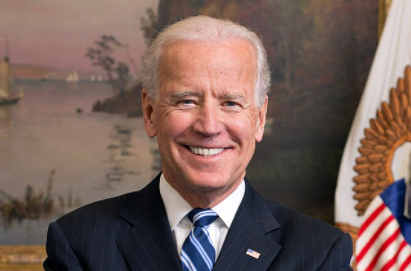
The incoming administration of President-elect Joe Biden is unlikely to herald significant changes for business aviation, although the future of bonus depreciation for aircraft sales is in question, experts say.
The combination of a likely Republican-controlled Senate, the global COVID-19 pandemic, and a president-elect with a track record of working within existing institutions will combine to limit the chances of any major changes to Trump-era tax policies, a cross-section of industry figures and political operatives speaking in interviews and post-election webinars said.
“Every election year, the talk starts in February or March that this is an election year so things are going to be slow,” Brian Foley, an analyst with Brian Foley Associates, tells The Weekly of Business Aviation. “Without exception, that happens every four years. It’s sort of everyone’s excuse if things aren’t going well. But I think it’s a worn-out excuse. Whatever happens in January when the new administration takes over, things are not going to come to a screeching stop.”
One area of concern has been Biden’s campaign pledge to roll back President Donald Trump’s tax cuts. These include a 100% bonus depreciation, which allows buyers of private jets to write off the total cost against tax in the year of purchase. This has been credited with stimulating both the new and used aircraft sales market. But its importance to sales may have been overstated, according to various aircraft sales professionals, while doubts over the incoming administration’s ability to reverse Trump tax changes mean the fears of bonus depreciation disappearing may also not come to pass.
“Although [the 100% bonus] drives a lot of the beginning conversations about buying planes, at the end of the day it’s really not the reason people buy airplanes,” Jay Mesinger, CEO and president of Mesinger Jet Sales, said a Nov. 11 webinar hosted by Corporate Jet Investor (CJI). “I think they buy airplanes to get around, and to get around safely—to get out ahead of their competition and in front of their customers.”
Although the final makeup of the Senate remains unclear—two runoff elections will be held in Georgia in January—there is a widespread expectation that the Republicans will retain a narrow Senate majority. This is likely to frustrate any attempts by Democrats to pass far-reaching new laws.
“If Republicans keep the Senate, and with gains in the House, I think any significant tax changes are off the table at this point,” Kerry Knott, chief of staff to Rep. Robert Aderholt (R-Ala.), said during a Nov. 12 webinar hosted by the National Air Transportation Association (NATA).
Even if bonus depreciation is removed, the outlook for airplane sellers remains good.
“Bonus depreciation only affects two-thirds of the marketplace,” Jet Perspectives owner and CEO Bob Zuskin told the CJI webinar. “There’s still the third of the marketplace—internationally—where they don’t give a damn about bonus depreciation. We’re very U.S.-centric in this country, and we think that whatever tax benefits or advantages we have are somehow going to affect the global economy for corporate aircraft. I frankly don’t see it.”
There is widespread agreement that the COVID-19 pandemic, and the ongoing responses to it, will be of far more importance than the change of U.S. government.
“Forecasters, right now, should probably get in the unemployment line with pollsters,” Steve Varsano, managing director of The Jet Business, said during the CJI webinar. “You can’t give a forecast right now. It’s impossible to think what’s going to happen. But I do think you’re going to see a surge of interest in the first and second quarter, just because of the vaccines coming out.”
“I anticipate that 2021 will be better because I think we’ll have more optimism,” Janine Iannarelli, founder and president of Houston-based Par Avion Ltd., tells The Weekly. “A vaccine will send that off the charts.”
Worrying over the limited likelihood of the loss of the depreciation bonus is probably wasted effort, Iannarelli argues. Instead, prudent planning for an era of much heavier taxation—for everybody—should be in order.
“Once we get past this, the focus is going to have to return to how we restore our global economies, get people back to work, and pay off the debt that was incurred in the process of trying to salvage the world,” Iannarelli says. “Governments have really played their part, throwing money at an emergency when it was called for. [But] we’re all going to pay for a piece of that pie.”





